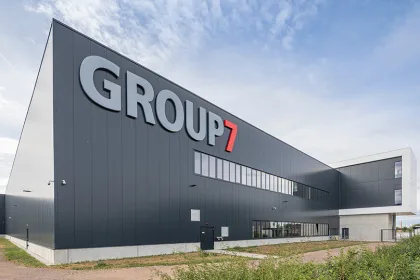In a landscape where sporting success drives economic growth, Robert Schogger, co-Founder and CEO of MetSpace, highlights the crucial behind-the-scenes infrastructure that empowers teams to triumph and positions businesses to thrive.
SPORTS BUSINESS SUCCESS LIES BEHIND CLOSED DOORS
I’m writing this the week after another 2025 sports highlight – a dominant display from the England men’s team to secure victory over the old adversary, Australia, and that’s following a memorable 2-1 win by the British & Irish Lions on tour this summer.
The women’s teams, in particular, have had an exceptional year. Both the Red Roses and Lionesses sealed historic victories, with the latter clinching the Women’s EURO 2025 for the second time and the former claiming the ultimate prize – the Women’s Rugby World Cup.
Although performance on the pitch steals the headline, behind every winning team, there’s a robust organisation – a unit working consistently to provide the best platform to deliver these results, and that’s where the infrastructure behind the scenes becomes so important.
SPORTS SUCCESS IS GOOD FOR BUSINESS
British sporting success is great for so many reasons – including inspiring future talent, spotlighting new role models, and boosting morale.
On a business level, sporting triumphs create an incredible halo effect that touches a range of other industries and the sector’s growth stats in recent years tell a consistently positive story:
- The sports sector as a whole contributed £99.6 billion in direct economic output in 2021, and the vast majority (£86.8 billion) came from active sport, including clubs, facilities, and events.
- Globally, 7.3 percent market growth is expected across the sports industry over the next three to five years.
- Adjacent markets such as sports nutrition are also growing at a pace, set to reach £2.57 billion by 2030 (up from £1.38 billion in 2023).

WORKSPACES ARE ONE OF THE BENEFICIARIES
In the workspace sector, we’ve seen a significant impact from the growth of sports this year alone.
We supply managed offices to growing businesses, offering self-contained, thoughtful workspaces across London.
Managed offices are private office spaces with no shared facilities, their own amenities such as kitchens and breakout spaces, and all services, including cleaning and Wi-Fi, managed for the organisation. Additionally, we’ve experienced an uptick in sports industry enquiries of over 200 percent over the past 12 months.
Although it might sound like a small component of a business operations, we’ve found that the workspace an organisation chooses is actually a crucial cog. It’s a statement of intent – often a platform for future growth and an enabler of bringing the team together in the right environment.
A workspace is also a direct reflection of the business – it should align with their brand, and that’s something that comes across strongly in sports businesses’ office searches.
WHY CHOOSING THE RIGHT ENVIRONMENT IS CRUCIAL
In the last six months, we’ve found offices for the Women’s Super League – marking its first move out of Wembley and into Central London – and professional football clubs from the top two divisions, amongst others.
We’ve also worked with adjacent industries such as sports nutrition businesses to find them the right premises.
There’s a strong case for choosing private, thoughtfully designed and managed offices over shared workspaces, and it seems to be a deliberate choice for sports businesses.
They’re brands first and foremost, and powerful branding is all-important in the sports world – it’s what fans, sponsors, and talent buy into.
Like performance, it’s not something that comes together on the pitch, but it’s a consistent presence. With the right managed office environment, sports organisations can reflect and live the brand day-to-day, whether bringing the team together or hosting guests. A good base helps to foster a strong culture.
A managed office can provide the perfect backdrop and allows for more control over the brand experience than shared branded spaces in a serviced office.
Furthermore, privacy is a crucial consideration. Sports businesses focus on negotiations, strategy, and partnerships throughout the working year.
It’s a highly competitive environment, with conversations frequently held behind closed doors. Whether it’s hosting sports stars or arranging deals, managed offices offer more private spaces and fewer shared areas.
Reliability is also crucial in a fast-paced organisation; a sports business can only thrive if its infrastructure is reliable. The beauty of the managed offices model is that everything about their workspace is managed for the organisation by a team experienced in running office environments.
Everything should be considered and taken care of; it needs to be managed seamlessly, behind the scenes, so that the business can focus squarely on its world.
LONG-TERM THINKING FOR LONG-TERM SUCCESS
No sports team finds success after one day’s training. Ask any successful manager, and they’ll tell you about the years of work and preparation that go into helping a team lift a trophy on the day.
Unlike other models, managed offices are designed to provide a stable base for growth. A managed space signals ambition, and in its stability lies a marker – the brand is here to stay, putting a stake in the ground.
In sport, the spotlight is often on the players on game day, when the action happens – and rightly so – but for this public-facing success, the backroom needs to run like a well-oiled machine.
The ultimate performance enhancer doesn’t lie on the pitch but behind closed doors.

































